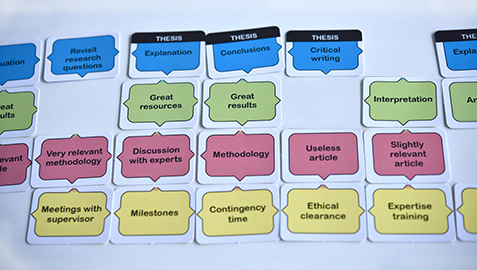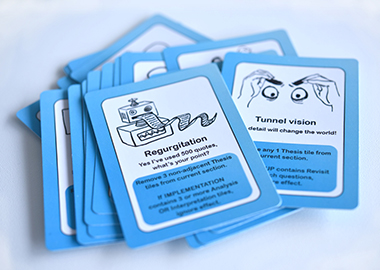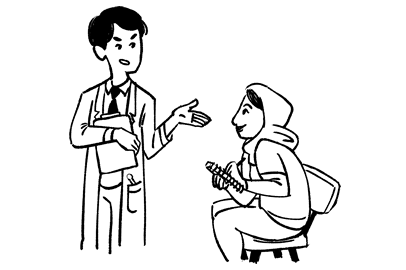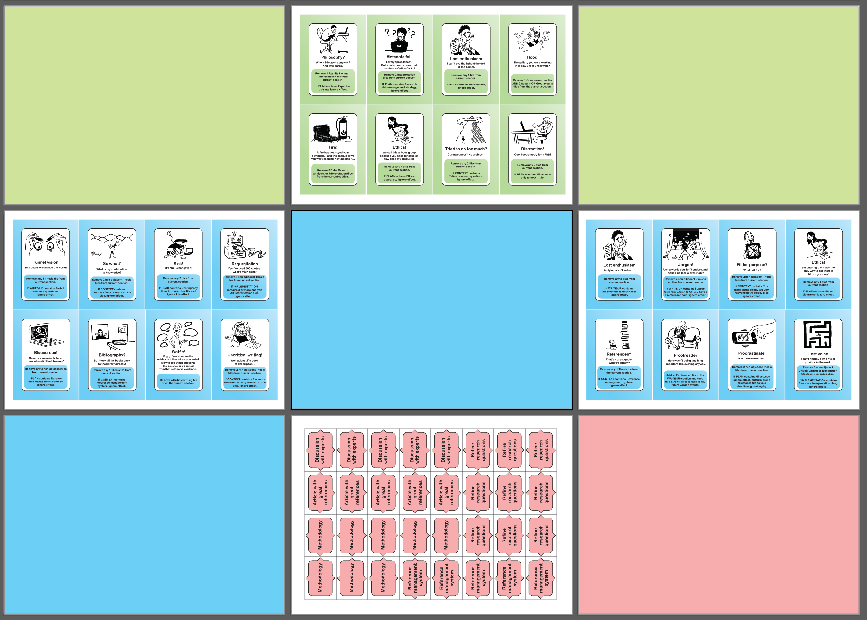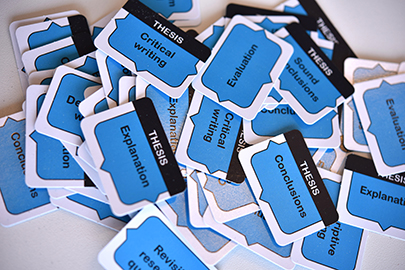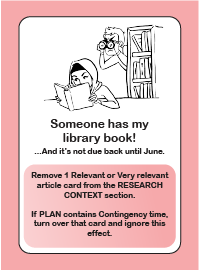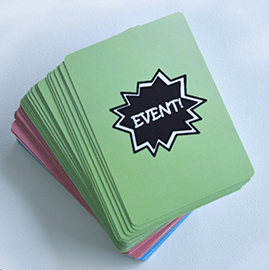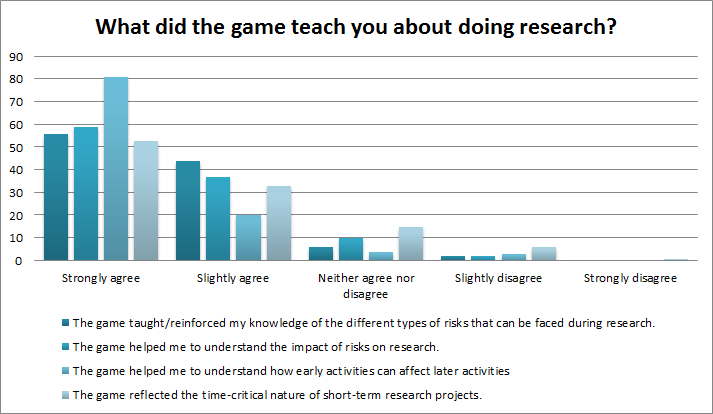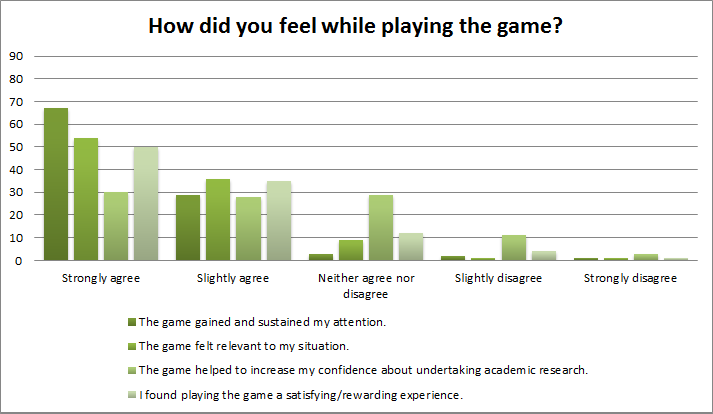×
Get the game
Instructions for buying or downloading the game.
How to Fail Your Research Degree is free to use and adapt on a not-for-profit basis. However, clearly there are costs associated with printing the game. Therefore you have two options, you can buy the game on a print-on-demand basis for cost. Or, you can have all of the game assets as a pdf file for free, to print and cut out yourself.
Buy the game from gamecrafter. (NB, if you are in the UK there is a customs charge of approx £10 for importing the game).
Request the file to print the cards yourself for free.
Important
Before you buy the game, please make sure you familiarise yourself with how it works. The game requires a facilitor to contextualise the students' learning. All of the help materials are on this website, such as the video, tutor guide, and game rules.
If you use this game, please get in touch to tell me how it went!
